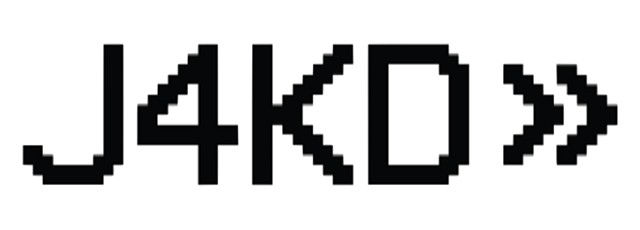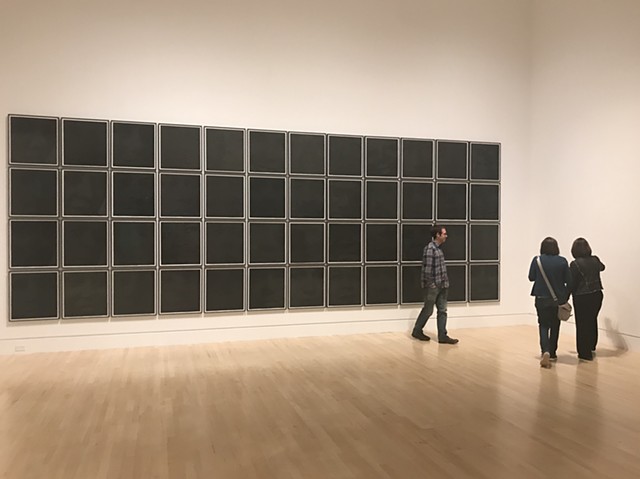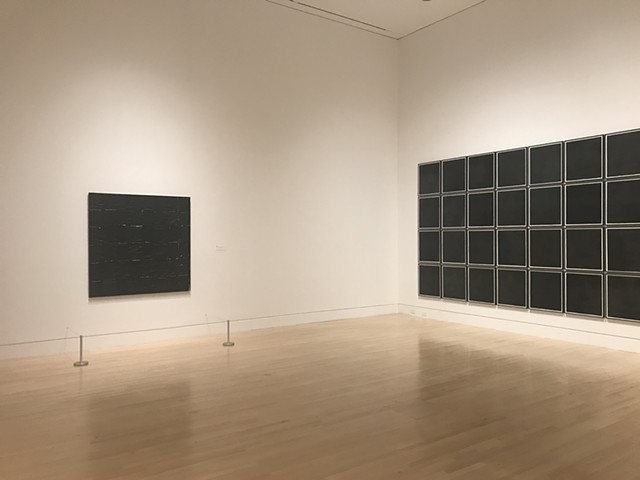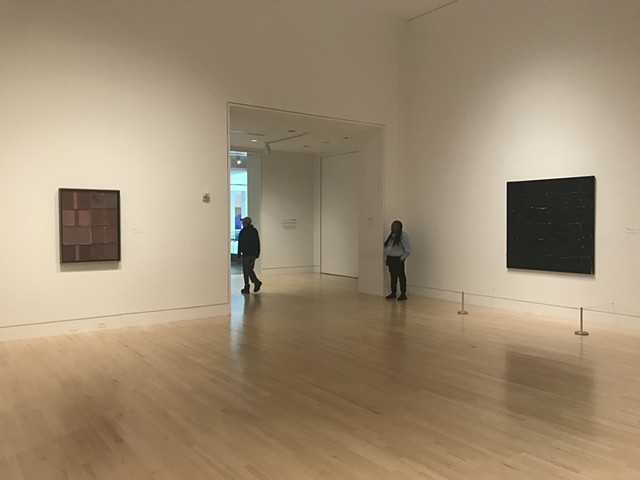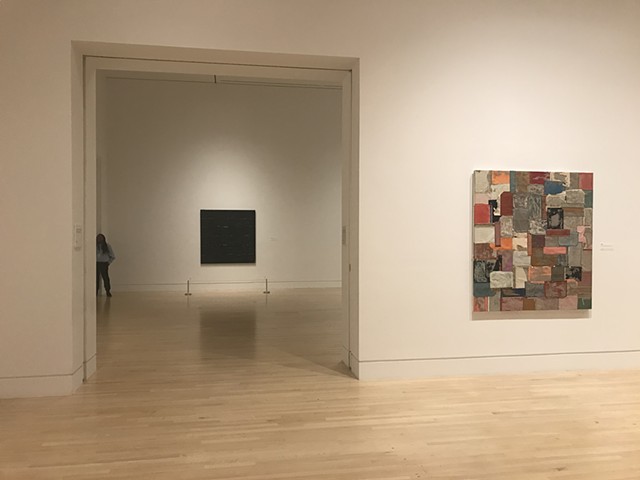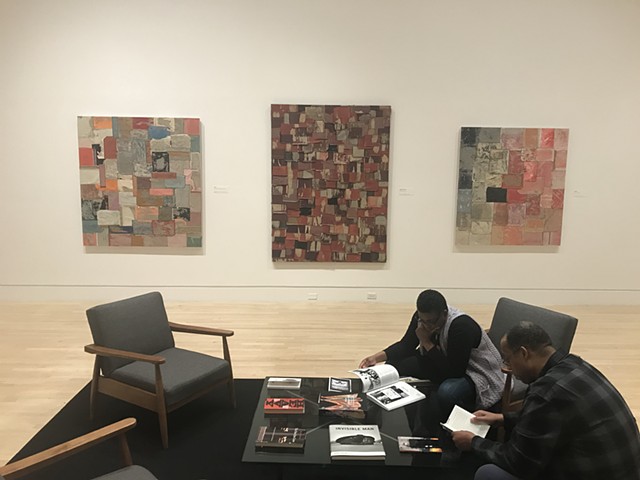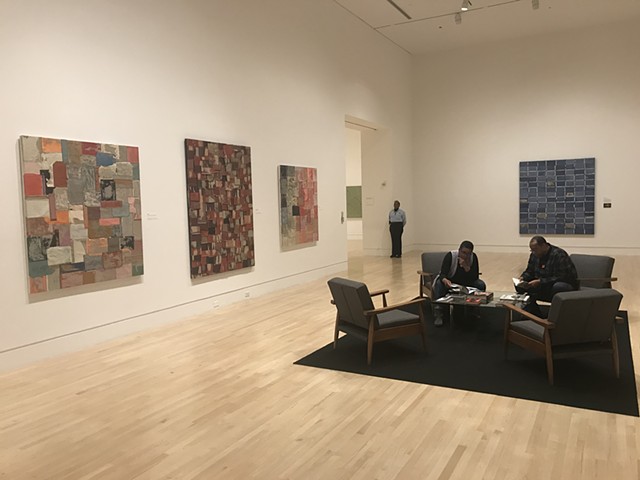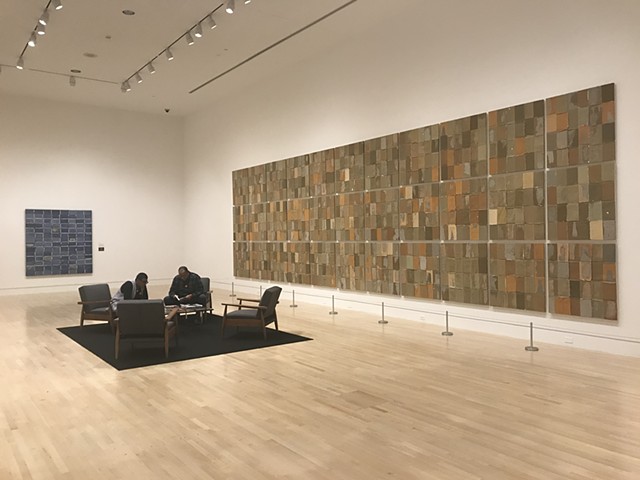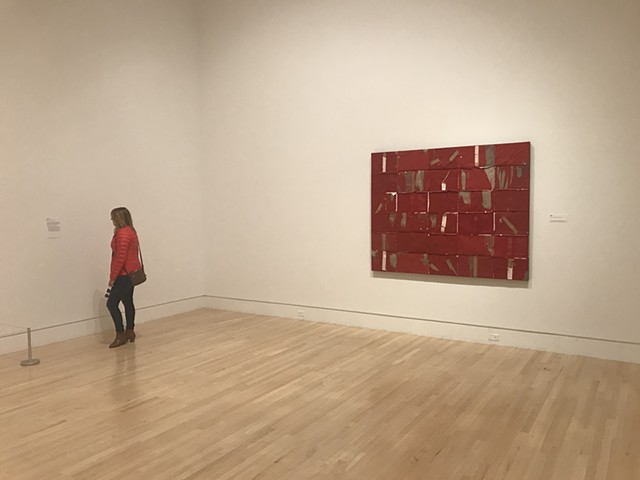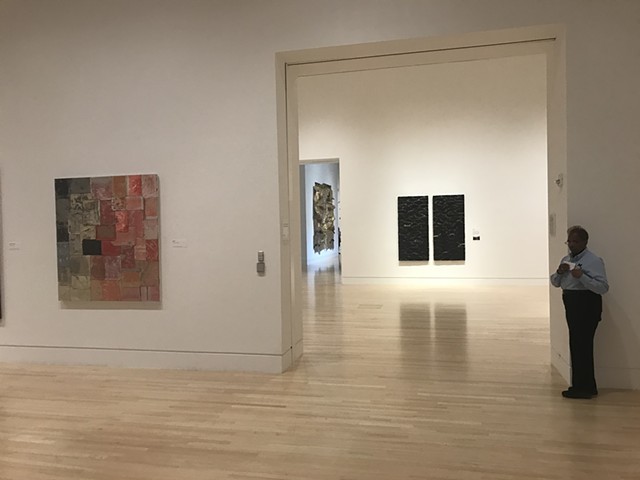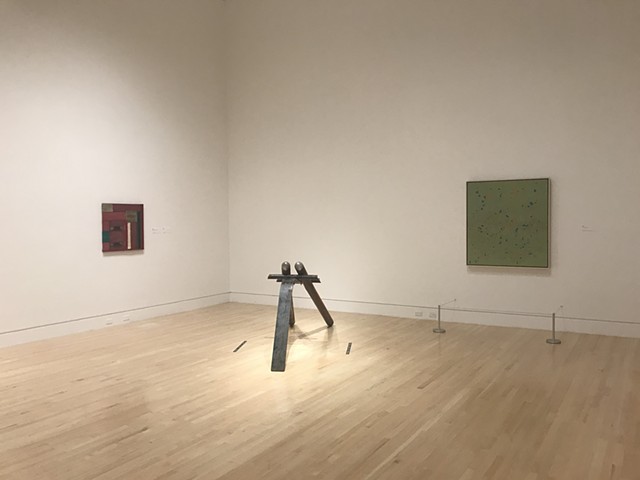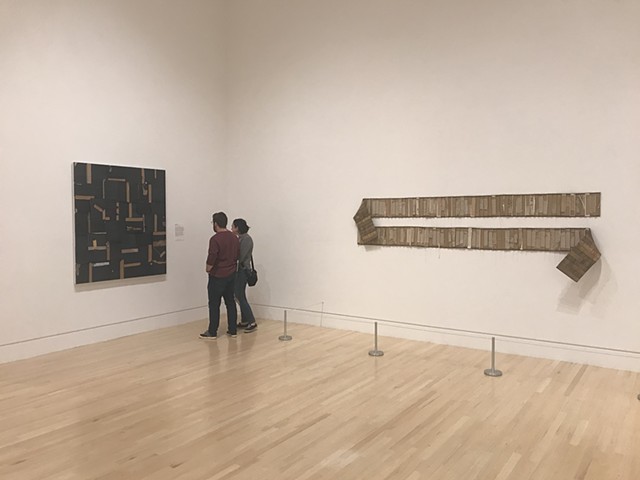Samuel Levi Jones | Left of Center
Samuel Levi Jones (American, b. 1978) provides striking commentary on the duplicitous and oppressive nature of American power structures. Accordingly, this exhibition presents how Jones’s deconstruction of encyclopedias, law books, medical texts, and football equipment examines injustice and the way it pervades American education, the criminal justice system, and sports entertainment.
Art museums are now at a crossroads, one that necessitates deep institutional critique, and Jones’s artistic practice uncovers the layers of social constructs reinforced by law, literature, and popular visual
imagery. With purposeful examination, his stunning canvases restructure the tomes that sustain systematic oppression.
Jones’s use of pop culture, current events, and personal experiences speak to both our histories and our contemporary realities. Therefore, his ability to transform antiquated volumes of texts into new visual paradigms reframes the relationships between freedom and oppression, power and vulnerability, and equality and exclusion.
Co-curated with Dr. Kelli Morgan.
This exhibition is presented by the Central Indiana Community Foundation (CICF).
CICF works to mobilize people, ideas and investment to make Central Indiana a community where everyone has equitable opportunity to reach their full potential—no matter place, race or identity.
Additional support is provided by an anonymous donor.
SAMUEL LEVI JONES: LEFT OF CENTER
By Dr. Kelli Morgan Associate, Curator of American Art and Bryn Jackson, Assistant Curator of Audience Engagement and Performance | March 05, 2019, 06:35 pm
Opens March 15, 2019
What is it like to wake every day conscious of the fact that you’re literally surviving America’s sordid past? How does a group of people consistently find ways to live in a society founded upon their demise? Most people of color know all this too well, and in March 2019 Newfields confronts this reality with Left of Center, the first major museum survey of works by Indiana native Samuel Levi Jones. A burgeoning contemporary artist, Jones provides striking visual commentary on the duplicitous and oppressive nature of American power structures, particularly those that substantiate our education system, the criminal justice system and healthcare, as well as the American historical narrative. Exhibiting 16 carefully selected works, Left of Center offers an in-depth look at how Jones’s deconstruction of often racist and blatantly biased cultural icons (sets of encyclopedias, leather-bound law books, medical texts, and football equipment) manifests extraordinary abstract paintings and sculptures.
This is a very important time for Newfields to present this show, as art institutions across the nation find themselves at a crossroads offering one of two paths: either change the discriminatory aspects of museum practices, or risk institutional failure. And it is imperative that Jones’s exhibition takes place right here and right now, as Newfields is a prominent museum rapidly transforming its culture from the inside out. To start, it is important to recognize when significant work is created within the context of our local community. As an Indiana native, Jones’s perspectives speak to our histories and as well as our contemporary realities. Accordingly, Left of Center communicates that Newfields continues to be a museum actively engaging its local art communities.
Additionally, Left of Center takes a critical look at the ways in which people of color are often misrepresented within the fields of law, Western medicine, academia, and athletics, which are some of humanity’s most powerful and omnipresent institutions. Art institutions, too, are particularly guilty of misrepresentation and erasure. In 2014, the Mellon Foundation conducted a study across all U.S. art museums and discovered that the percentage of people of color working as professional curators or administrators was less than 16%. A staggering figure, it was glaring evidence that American art institutions had made little to no gains in staff diversity. As such, it would be a missed opportunity if we didn’t invite that level of critique upon ourselves as we move forward to more equitable exhibition, collection, and hiring practices.
As curators of color who are also scholars of critical race theory and performance, we’re really excited about the exhibition because Jones quite literally peels back the layers of institutional racism in our society. With purposeful examination, his stunning patch-worked canvases completely restructure the tomes (encyclopedias, medical books, and law texts) that uphold race-based oppression. Thus, his artistic process unveils itself over time. His ability to deconstruct and transform the antiquated into new visual and textual paradigms reframes the relationships between freedom and oppression, power and vulnerability, as well as equality and exclusion. Accordingly, the work rewards those who choose to spend time with it, gaining insight to Jones’s process and perspective through a constellation of references to popular culture, current events, and personal experiences.
Dr. Morgan envisions the show as a maze, but not in the sense of misdirection. Left of Center is a path of discovery that illuminates several different routes, which take the viewer far beyond what is initially perceived as a group of abstract textiles on canvas. As the viewer comes closer, Jones’s combination of history, material, color, and texture uncovers a truth about what it really means to be both Black and American. Jackson thinks of the exhibition as a bit of a Trojan horse. On the surface, the work employs a beautiful minimalist aesthetic that communicates an appreciation for color and the tactile qualities of the material. However, each work reveals a conceptual richness to those who are willing to follow in Jones’s footsteps, revealing the many layers of meaning that are embedded within the materials.
